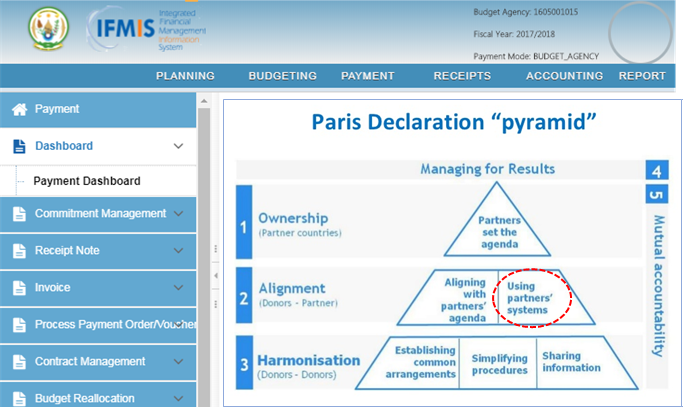Integrating the Enabel Health Programme into the Rwandan national planning, budgeting and procurement systems
In 2005, countries from around the world
endorsed the Paris Declaration on Aid Effectiveness, a comprehensive attempt to
make aid more effective based on principles of partnership, in order to produce
better development results. As part of this
initiative, Belgium committed to the principle of ‘alignment’, both with the
partner’s development agenda and its management systems for the delivery of
aid.
'National Execution' implementation modality
Throughout the years, BTC (now
Enabel) has progressively relied more and more on Rwandan systems for the
implementation of its projects: for a long time, most tenders have been managed
according to the Rwandan Public Procurement law, and projects and programmes
have been integrated in the Single Project Implementation Units (SPIU) that
were established in ministries to coordinate projects funded by external and
domestic grants. In the Indicative Cooperation Programme 2011-2014, it was
agreed that Belgium would further enhance the use of country systems, by
implementing projects under ‘National Execution’ modality. The Ubuzima Burambye
(UB) Health Programme was identified as a pilot thanks to the long-standing and
excellent relationship with the Ministry of Health (MoH) and its
well-established SPIU.
Use of Rwanda's country systems and procedures
The most important change relates
to the full alignment with the Rwandan planning and budgeting calendar, as well
as the use of the Government of Rwanda’s systems for procurement and financial
management (better known as ‘Umucyo’ e-procurement and ‘Integrated Financial Management
Information System’/IFMIS respectively). The former change implies that UB’s
activities are planned and budgeted for according to exactly the same
procedures and timeline as MoH’s activities funded with domestic resources,
which reduces transaction costs for the partner. The latter ensures that the UB
Programme is integrated in the national budget and its expenditures reported in
the GoR financial statements. Moreover, this close involvement offers
opportunities for strengthening those systems through regular feedback which is
provided to the relevant units in the Ministry of Finance and Economic Planning
(MINECOFIN) or the Rwanda Public Procurement Authority (RPPA).
Capitalising on the UB Programme experience
After two years of programme
implementation, it can be said that the integration into national systems has been
successful, although it has not always been without challenges. Notwithstanding
the drawbacks, it is assured that future cooperation programs may benefit from the
UB Programme experience thanks to an elaborate ‘lessons learned’ overview which
has been built up over the years.
For more info about the
use of the National Execution modality, contact pieter.deparcq@enabel.be
Dernières actualité de ce projet
Pas d'actualité

